– whereas the often scolded cholesterol is good for you
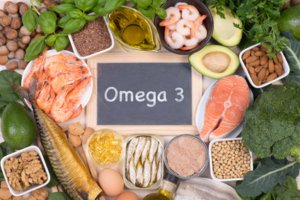 Cardiovascular diseases account for more deaths than anything else. Still, there is a lot of discussion about the diet and its impact on cardiovascular health, typically when it comes to the question of avoiding fat and choosing margarine instead of butter. A team of Czech scientists decided to study diet habits among different populations and compare these with the risk of cardiovascular disease and premature death. Their study shows that there is no need to be afraid of cholesterol. In fact, the official dietary guidelines could easily do with an adjustment. At the same time, it is important to reduce our intake of carbohydrates and omega-6 fatty acids that are the real culprits. Finally, it is essential to increase the intake of omega-3.
Cardiovascular diseases account for more deaths than anything else. Still, there is a lot of discussion about the diet and its impact on cardiovascular health, typically when it comes to the question of avoiding fat and choosing margarine instead of butter. A team of Czech scientists decided to study diet habits among different populations and compare these with the risk of cardiovascular disease and premature death. Their study shows that there is no need to be afraid of cholesterol. In fact, the official dietary guidelines could easily do with an adjustment. At the same time, it is important to reduce our intake of carbohydrates and omega-6 fatty acids that are the real culprits. Finally, it is essential to increase the intake of omega-3.
- because of the many antioxidants
 A new Chinese study that is published in the science journal, Heart, shows that eating an egg every day can lower your risk of stroke by 26 percent. The reason is that eggs contain selenium and other powerful antioxidants that protect against atherosclerosis, and we do not get all that much selenium from our diets. Therefore, forget all about the cholesterol scare and warnings against eating eggs. That dietary advice is outdated and has done more harm than good.
A new Chinese study that is published in the science journal, Heart, shows that eating an egg every day can lower your risk of stroke by 26 percent. The reason is that eggs contain selenium and other powerful antioxidants that protect against atherosclerosis, and we do not get all that much selenium from our diets. Therefore, forget all about the cholesterol scare and warnings against eating eggs. That dietary advice is outdated and has done more harm than good.
Dietary fibres are coarse, indigestible carbohydrates. They are constituents of cell walls in plants and differ from starch and sugar by their inability to be broken down by the digestive enzymes in the gastro-intestinal tract. For that reason, dietary fibre hardly provides any energy on its way through the digestive system. On its passage through the system, fibre affects the intestinal contents and its transit time, which benefits the digestion and also provides secondary health benefits.
Dietary fibre is divided in two groups: Soluble and insoluble fibre types.
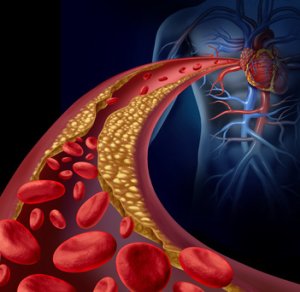 Atherosclerosis is one of the leading causes of death in the Western world, and the heart is particularly vulnerable. According to a study from the University of Birmingham, Alabama (USA), foods that are rich in potassium such as bananas, potatoes, avocado, and almonds protect against this disease, which takes years to develop. Beware that too much salt and the use of diuretics may deplete the body’s potassium stores.
Atherosclerosis is one of the leading causes of death in the Western world, and the heart is particularly vulnerable. According to a study from the University of Birmingham, Alabama (USA), foods that are rich in potassium such as bananas, potatoes, avocado, and almonds protect against this disease, which takes years to develop. Beware that too much salt and the use of diuretics may deplete the body’s potassium stores.
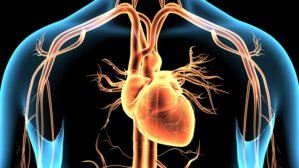 On a global scale, cardiovascular disease and coronary occlusion cause more deaths than any other factor. However, according to a large meta-analysis from Harvard T. H. Chan School of Public Health and Brigham and Women’s Hospital in Boston, USA, people who take fish oil have a lower risk of atherosclerosis and cardiac failure than those, who do not take the supplements. The study also revealed that high-dosed fish oil supplementation delivers more health benefits than the lower doses. Atherosclerosis develops gradually, and millions of people die every year because of this problem, which means that even minor changes such as taking supplements and eating a healthier diet, can improve quality of life and prevent many deaths. So, according to the new study, how much fish oil is needed in order to obtain the optimal cardiovascular effect?
On a global scale, cardiovascular disease and coronary occlusion cause more deaths than any other factor. However, according to a large meta-analysis from Harvard T. H. Chan School of Public Health and Brigham and Women’s Hospital in Boston, USA, people who take fish oil have a lower risk of atherosclerosis and cardiac failure than those, who do not take the supplements. The study also revealed that high-dosed fish oil supplementation delivers more health benefits than the lower doses. Atherosclerosis develops gradually, and millions of people die every year because of this problem, which means that even minor changes such as taking supplements and eating a healthier diet, can improve quality of life and prevent many deaths. So, according to the new study, how much fish oil is needed in order to obtain the optimal cardiovascular effect?
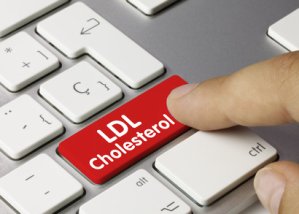 Medical science has claimed for decades that elevated cholesterol levels pose a health threat, especially if you have too much of the so-called “bad” cholesterol – or LDL (Low-Density Lipoprotein). However, a team of international experts is now arguing that this theory is exaggerated. In fact, the experts specifically advise against taking cholesterol-lowering statins. Meanwhile, science is focused on how to improve the safety of statins by combining them with supplements of coenzyme Q10.
Medical science has claimed for decades that elevated cholesterol levels pose a health threat, especially if you have too much of the so-called “bad” cholesterol – or LDL (Low-Density Lipoprotein). However, a team of international experts is now arguing that this theory is exaggerated. In fact, the experts specifically advise against taking cholesterol-lowering statins. Meanwhile, science is focused on how to improve the safety of statins by combining them with supplements of coenzyme Q10.
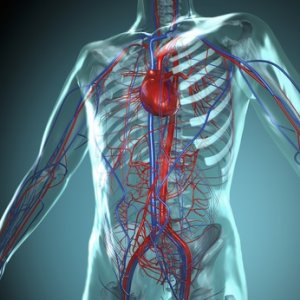 There is absolutely no reason not to consume eggs, meat, butter and other cholesterol-filled foods with a good conscience. American dietary guidelines have finally exonerated cholesterol, which happens to be an essential compound. Many scientists actually claim that atherosclerosis and cardiovascular disease are both a result of inflammation and lack of specific micronutrients. It is important to pay attention to factors that are known to promote inflammation in the body and take the necessary steps by looking after your circulatory system, making healthy lifestyle choices, and possibly even using supplements.
There is absolutely no reason not to consume eggs, meat, butter and other cholesterol-filled foods with a good conscience. American dietary guidelines have finally exonerated cholesterol, which happens to be an essential compound. Many scientists actually claim that atherosclerosis and cardiovascular disease are both a result of inflammation and lack of specific micronutrients. It is important to pay attention to factors that are known to promote inflammation in the body and take the necessary steps by looking after your circulatory system, making healthy lifestyle choices, and possibly even using supplements.
- and supplements save lives
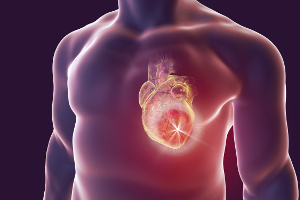 Vitamin D deficiencies are widespread and result in an increased risk of atherosclerosis, heart disease, and hypertension, according to a new study from University of South Australia. Because cardiovascular diseases are the leading cause of death globally, scientists see a huge potential in vitamin D, a nutrient that may be able to save millions of lives.
Vitamin D deficiencies are widespread and result in an increased risk of atherosclerosis, heart disease, and hypertension, according to a new study from University of South Australia. Because cardiovascular diseases are the leading cause of death globally, scientists see a huge potential in vitamin D, a nutrient that may be able to save millions of lives.
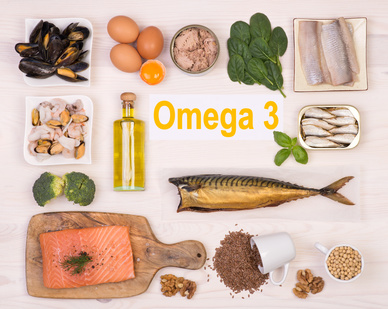 It pays off to make sure to get enough omega-3 from your diet or by taking supplements. Studies show that the content of omega-3 fatty acids in the blood are linked directly to a lower risk of developing atherosclerosis and dying of a heart attack. This was ween in a large epidemiological study that is published in the journal JAMA Internal Medicine.
It pays off to make sure to get enough omega-3 from your diet or by taking supplements. Studies show that the content of omega-3 fatty acids in the blood are linked directly to a lower risk of developing atherosclerosis and dying of a heart attack. This was ween in a large epidemiological study that is published in the journal JAMA Internal Medicine.
 Q10 is a lipid-soluble coenzyme that is found in all the body's cells, except for the red blood cells. Carbohydrate, fat, and protein get converted into energy by means of Q10 and the oxygen we breathe. This process takes place inside the small, cellular power stations called mitochondria. To begin with, Q10 contributes to storing the energy in a chemical form called ATP (adenosine triphosphate). After that, Q10 makes sure that the energy is released in step with the shifting energy requirement of the cells.
Q10 is a lipid-soluble coenzyme that is found in all the body's cells, except for the red blood cells. Carbohydrate, fat, and protein get converted into energy by means of Q10 and the oxygen we breathe. This process takes place inside the small, cellular power stations called mitochondria. To begin with, Q10 contributes to storing the energy in a chemical form called ATP (adenosine triphosphate). After that, Q10 makes sure that the energy is released in step with the shifting energy requirement of the cells.
- but ageing processes and cholesterol-lowering drugs inhibit the body’s Q10 synthesis
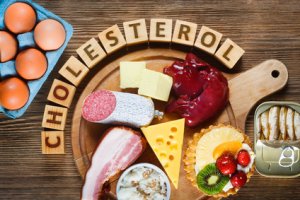 No matter how you twist and turn it, cholesterol is an essential substance, and we humans produce most of it ourselves. What is important is to make sure that the cholesterol we have in our blood does not oxidize, and that is something which Q10 and other antioxidants take care of. Stable blood sugar levels also help us maintain a healthy cholesterol balance.
No matter how you twist and turn it, cholesterol is an essential substance, and we humans produce most of it ourselves. What is important is to make sure that the cholesterol we have in our blood does not oxidize, and that is something which Q10 and other antioxidants take care of. Stable blood sugar levels also help us maintain a healthy cholesterol balance.
- and you also need magnesium for your bones
 It has been discussed whether it is calcium or vitamin D that improves women’s cholesterol balance. Earlier studies of women who use combined supplements have not been able to determine whether the positive effect is due to calcium or vitamin D. However, a study from Women’s Health Initiative (WHI) reveals that the effect is down to vitamin D. If you want strong bones and a healthy cardiovascular system, it is a good idea to combine both calcium and vitamin D with magnesium.
It has been discussed whether it is calcium or vitamin D that improves women’s cholesterol balance. Earlier studies of women who use combined supplements have not been able to determine whether the positive effect is due to calcium or vitamin D. However, a study from Women’s Health Initiative (WHI) reveals that the effect is down to vitamin D. If you want strong bones and a healthy cardiovascular system, it is a good idea to combine both calcium and vitamin D with magnesium.
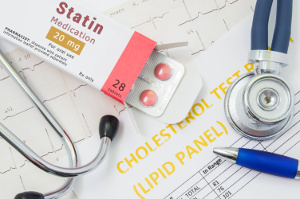 Cholesterol-lowering statins are among some of the most widely sold medical drugs. However, there is growing disagreement about their preventive effect on atherosclerosis and cardiovascular diseases, which are linked to many other factors than cholesterol levels alone. It turns out that statins also block the body’s production of vitamin K2, a nutrient that contributes to removing calcium from the bloodstream. A new study that is published in Medical Sciences concludes that atherosclerosis is more prevalent among statin users than among non-users, regardless of any cardiovascular diseases that have already been diagnosed. In other words, statins actually increase your risk of clogged-up arteries and that contradicts the traditional view. The new study supports earlier research, and it has been known for years that statins also block the endogenous synthesis of coenzyme Q10 and vitamin D, both of which are important for the heart and circulatory system.
Cholesterol-lowering statins are among some of the most widely sold medical drugs. However, there is growing disagreement about their preventive effect on atherosclerosis and cardiovascular diseases, which are linked to many other factors than cholesterol levels alone. It turns out that statins also block the body’s production of vitamin K2, a nutrient that contributes to removing calcium from the bloodstream. A new study that is published in Medical Sciences concludes that atherosclerosis is more prevalent among statin users than among non-users, regardless of any cardiovascular diseases that have already been diagnosed. In other words, statins actually increase your risk of clogged-up arteries and that contradicts the traditional view. The new study supports earlier research, and it has been known for years that statins also block the endogenous synthesis of coenzyme Q10 and vitamin D, both of which are important for the heart and circulatory system.
 Vitamin B12 is a common term for a group of chemically related substances that all have vitamin activity. They are also known as cobalamins. The biosynthesis of the basic structure is handled by bacteria that are found many places in nature. The uptake of vitamin B12 from food requires the presence of the protein intrinsic factor that is formed in the gastric mucosa. Intrinsic factor binds to vitamin B12 and transports it into the body from the small intestine. Coli bacteria in the colon also produce vitamin B12 that is taken up by the body. Vitamin B12 is stored in the liver for up to several months at a time, and we humans are also able to reuse vitamin B12 that has been absorbed from the intestine. It is generally more difficult for the body to absorb vitamin B12 compared with other vitamins, and our ability to take up the nutrient decreases as we grow older. The synthetic basic form of vitamin B12 is used in nutritional supplements and also as a food additive. The dosages are typically rather large in order to ensure sufficient uptake of the nutrient.
Vitamin B12 is a common term for a group of chemically related substances that all have vitamin activity. They are also known as cobalamins. The biosynthesis of the basic structure is handled by bacteria that are found many places in nature. The uptake of vitamin B12 from food requires the presence of the protein intrinsic factor that is formed in the gastric mucosa. Intrinsic factor binds to vitamin B12 and transports it into the body from the small intestine. Coli bacteria in the colon also produce vitamin B12 that is taken up by the body. Vitamin B12 is stored in the liver for up to several months at a time, and we humans are also able to reuse vitamin B12 that has been absorbed from the intestine. It is generally more difficult for the body to absorb vitamin B12 compared with other vitamins, and our ability to take up the nutrient decreases as we grow older. The synthetic basic form of vitamin B12 is used in nutritional supplements and also as a food additive. The dosages are typically rather large in order to ensure sufficient uptake of the nutrient.
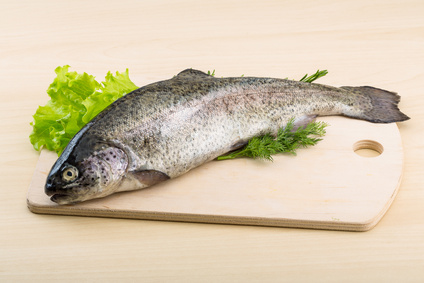 Vitamin B3 is water-soluble and because it does not get stored in the body we depend on regular intake of the nutrient. Niacin is a common term for nicotinic acid and nicotinamide. The body's metabolism is able to synthesise part of its required niacin from vitamin B6 and tryptophan, an amino acid which is primarily found in meat. Vitamin B3 is destroyed by heating.
Vitamin B3 is water-soluble and because it does not get stored in the body we depend on regular intake of the nutrient. Niacin is a common term for nicotinic acid and nicotinamide. The body's metabolism is able to synthesise part of its required niacin from vitamin B6 and tryptophan, an amino acid which is primarily found in meat. Vitamin B3 is destroyed by heating.
 Cardiovascular diseases account for more deaths than anything else. Still, there is a lot of discussion about the diet and its impact on cardiovascular health, typically when it comes to the question of avoiding fat and choosing margarine instead of butter. A team of Czech scientists decided to study diet habits among different populations and compare these with the risk of cardiovascular disease and premature death. Their study shows that there is no need to be afraid of cholesterol. In fact, the official dietary guidelines could easily do with an adjustment. At the same time, it is important to reduce our intake of carbohydrates and omega-6 fatty acids that are the real culprits. Finally, it is essential to increase the intake of omega-3.
Cardiovascular diseases account for more deaths than anything else. Still, there is a lot of discussion about the diet and its impact on cardiovascular health, typically when it comes to the question of avoiding fat and choosing margarine instead of butter. A team of Czech scientists decided to study diet habits among different populations and compare these with the risk of cardiovascular disease and premature death. Their study shows that there is no need to be afraid of cholesterol. In fact, the official dietary guidelines could easily do with an adjustment. At the same time, it is important to reduce our intake of carbohydrates and omega-6 fatty acids that are the real culprits. Finally, it is essential to increase the intake of omega-3.











 A new Chinese study that is published in the science journal, Heart, shows that eating an egg every day can lower your risk of stroke by 26 percent. The reason is that eggs contain
A new Chinese study that is published in the science journal, Heart, shows that eating an egg every day can lower your risk of stroke by 26 percent. The reason is that eggs contain  Atherosclerosis is one of the leading causes of death in the Western world, and the heart is particularly vulnerable. According to a study from the University of Birmingham, Alabama (USA), foods that are rich in potassium such as bananas, potatoes, avocado, and almonds protect against this disease, which takes years to develop. Beware that too much salt and the use of diuretics may deplete the body’s potassium stores.
Atherosclerosis is one of the leading causes of death in the Western world, and the heart is particularly vulnerable. According to a study from the University of Birmingham, Alabama (USA), foods that are rich in potassium such as bananas, potatoes, avocado, and almonds protect against this disease, which takes years to develop. Beware that too much salt and the use of diuretics may deplete the body’s potassium stores. On a global scale, cardiovascular disease and coronary occlusion cause more deaths than any other factor. However, according to a large meta-analysis from Harvard T. H. Chan School of Public Health and Brigham and Women’s Hospital in Boston, USA, people who take
On a global scale, cardiovascular disease and coronary occlusion cause more deaths than any other factor. However, according to a large meta-analysis from Harvard T. H. Chan School of Public Health and Brigham and Women’s Hospital in Boston, USA, people who take  Medical science has claimed for decades that elevated cholesterol levels pose a health threat, especially if you have too much of the so-called “bad” cholesterol – or LDL (Low-Density Lipoprotein). However, a team of international experts is now arguing that this theory is exaggerated. In fact, the experts specifically advise against taking cholesterol-lowering statins. Meanwhile, science is focused on how to improve the safety of statins by combining them with supplements of
Medical science has claimed for decades that elevated cholesterol levels pose a health threat, especially if you have too much of the so-called “bad” cholesterol – or LDL (Low-Density Lipoprotein). However, a team of international experts is now arguing that this theory is exaggerated. In fact, the experts specifically advise against taking cholesterol-lowering statins. Meanwhile, science is focused on how to improve the safety of statins by combining them with supplements of  There is absolutely no reason not to consume eggs, meat, butter and other cholesterol-filled foods with a good conscience. American dietary guidelines have finally exonerated cholesterol, which happens to be an essential compound. Many scientists actually claim that atherosclerosis and cardiovascular disease are both a result of inflammation and lack of specific micronutrients. It is important to pay attention to factors that are known to promote inflammation in the body and take the necessary steps by looking after your circulatory system, making healthy lifestyle choices, and possibly even using supplements.
There is absolutely no reason not to consume eggs, meat, butter and other cholesterol-filled foods with a good conscience. American dietary guidelines have finally exonerated cholesterol, which happens to be an essential compound. Many scientists actually claim that atherosclerosis and cardiovascular disease are both a result of inflammation and lack of specific micronutrients. It is important to pay attention to factors that are known to promote inflammation in the body and take the necessary steps by looking after your circulatory system, making healthy lifestyle choices, and possibly even using supplements.
 It pays off to make sure to get enough
It pays off to make sure to get enough  Q10 is a lipid-soluble coenzyme that is found in all the body's cells, except for the red blood cells. Carbohydrate, fat, and protein get converted into energy by means of Q10 and the oxygen we breathe. This process takes place inside the small, cellular power stations called mitochondria. To begin with, Q10 contributes to storing the energy in a chemical form called ATP (adenosine triphosphate). After that, Q10 makes sure that the energy is released in step with the shifting energy requirement of the cells.
Q10 is a lipid-soluble coenzyme that is found in all the body's cells, except for the red blood cells. Carbohydrate, fat, and protein get converted into energy by means of Q10 and the oxygen we breathe. This process takes place inside the small, cellular power stations called mitochondria. To begin with, Q10 contributes to storing the energy in a chemical form called ATP (adenosine triphosphate). After that, Q10 makes sure that the energy is released in step with the shifting energy requirement of the cells. No matter how you twist and turn it, cholesterol is an essential substance, and we humans produce most of it ourselves. What is important is to make sure that the cholesterol we have in our blood does not oxidize, and that is something which
No matter how you twist and turn it, cholesterol is an essential substance, and we humans produce most of it ourselves. What is important is to make sure that the cholesterol we have in our blood does not oxidize, and that is something which  It has been discussed whether it is
It has been discussed whether it is  Cholesterol-lowering statins are among some of the most widely sold medical drugs. However, there is growing disagreement about their preventive effect on atherosclerosis and cardiovascular diseases, which are linked to many other factors than cholesterol levels alone. It turns out that statins also block the body’s production of
Cholesterol-lowering statins are among some of the most widely sold medical drugs. However, there is growing disagreement about their preventive effect on atherosclerosis and cardiovascular diseases, which are linked to many other factors than cholesterol levels alone. It turns out that statins also block the body’s production of Vitamin B12 is a common term for a group of chemically related substances that all have vitamin activity. They are also known as cobalamins. The biosynthesis of the basic structure is handled by bacteria that are found many places in nature. The uptake of vitamin B12 from food requires the presence of the protein intrinsic factor that is formed in the gastric mucosa. Intrinsic factor binds to vitamin B12 and transports it into the body from the small intestine. Coli bacteria in the colon also produce vitamin B12 that is taken up by the body. Vitamin B12 is stored in the liver for up to several months at a time, and we humans are also able to reuse vitamin B12 that has been absorbed from the intestine. It is generally more difficult for the body to absorb vitamin B12 compared with other vitamins, and our ability to take up the nutrient decreases as we grow older. The synthetic basic form of vitamin B12 is used in nutritional supplements and also as a food additive. The dosages are typically rather large in order to ensure sufficient uptake of the nutrient.
Vitamin B12 is a common term for a group of chemically related substances that all have vitamin activity. They are also known as cobalamins. The biosynthesis of the basic structure is handled by bacteria that are found many places in nature. The uptake of vitamin B12 from food requires the presence of the protein intrinsic factor that is formed in the gastric mucosa. Intrinsic factor binds to vitamin B12 and transports it into the body from the small intestine. Coli bacteria in the colon also produce vitamin B12 that is taken up by the body. Vitamin B12 is stored in the liver for up to several months at a time, and we humans are also able to reuse vitamin B12 that has been absorbed from the intestine. It is generally more difficult for the body to absorb vitamin B12 compared with other vitamins, and our ability to take up the nutrient decreases as we grow older. The synthetic basic form of vitamin B12 is used in nutritional supplements and also as a food additive. The dosages are typically rather large in order to ensure sufficient uptake of the nutrient. Vitamin B3 is water-soluble and because it does not get stored in the body we depend on regular intake of the nutrient. Niacin is a common term for nicotinic acid and nicotinamide. The body's metabolism is able to synthesise part of its required niacin from vitamin B6 and tryptophan, an amino acid which is primarily found in meat. Vitamin B3 is destroyed by heating.
Vitamin B3 is water-soluble and because it does not get stored in the body we depend on regular intake of the nutrient. Niacin is a common term for nicotinic acid and nicotinamide. The body's metabolism is able to synthesise part of its required niacin from vitamin B6 and tryptophan, an amino acid which is primarily found in meat. Vitamin B3 is destroyed by heating. "After about one week of taking the Q10 supplement I could feel a huge difference," says 23-year old Alan Piccini, who has been suffering from extreme fatigue and muscle aches ever since he was a child.
"After about one week of taking the Q10 supplement I could feel a huge difference," says 23-year old Alan Piccini, who has been suffering from extreme fatigue and muscle aches ever since he was a child. “Taking capsules with co-enzyme Q10 has freed me of the severe side effects of my cholesterol lowering medicine,” Mrs Franken explains.
“Taking capsules with co-enzyme Q10 has freed me of the severe side effects of my cholesterol lowering medicine,” Mrs Franken explains.